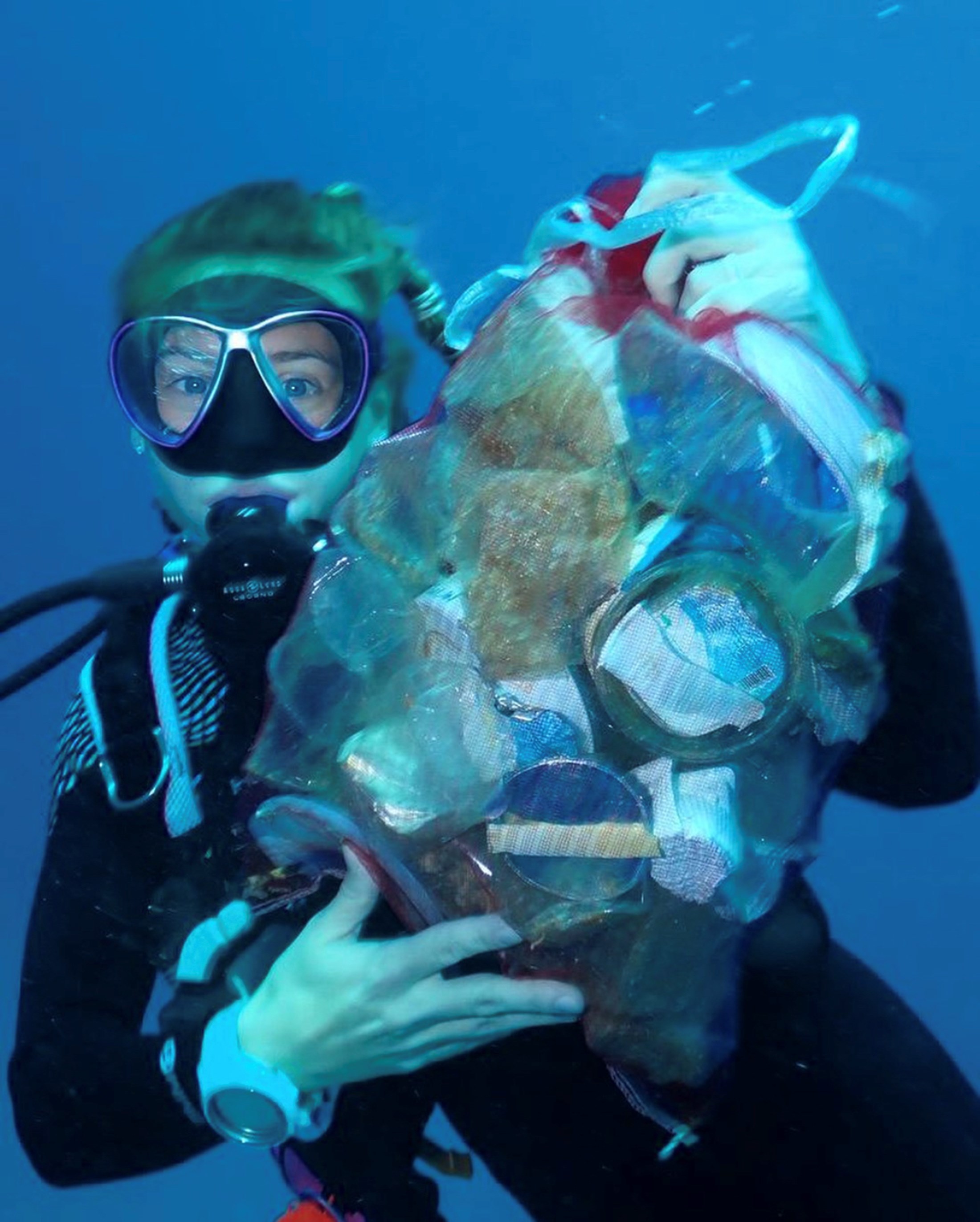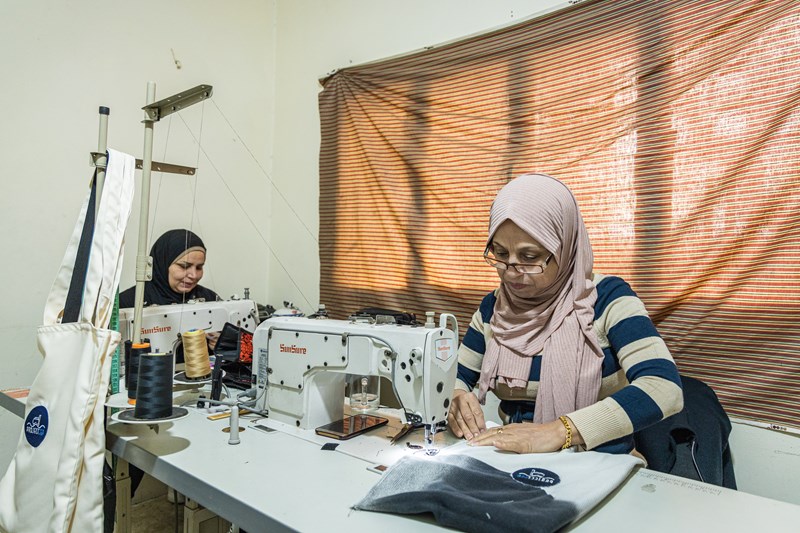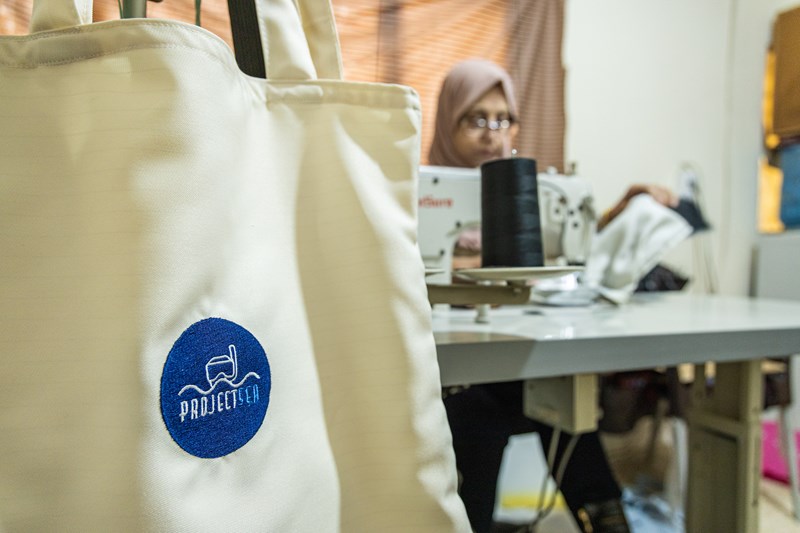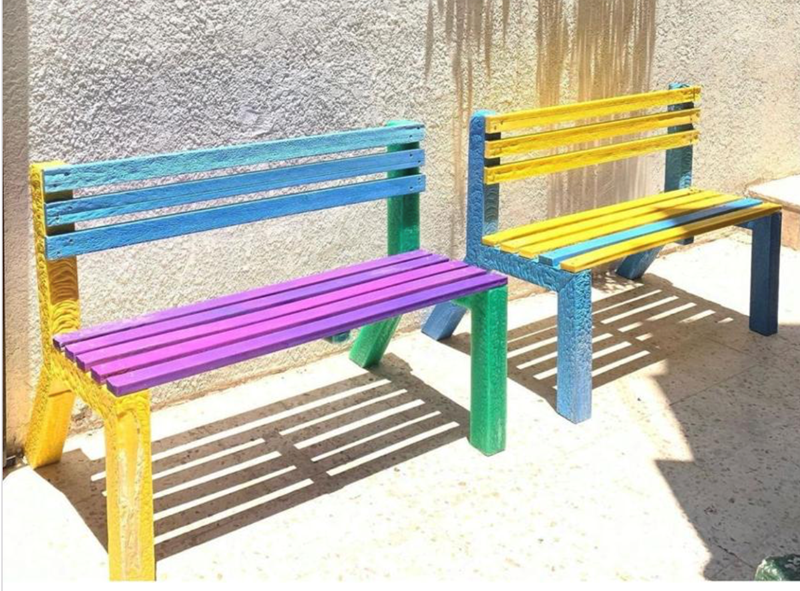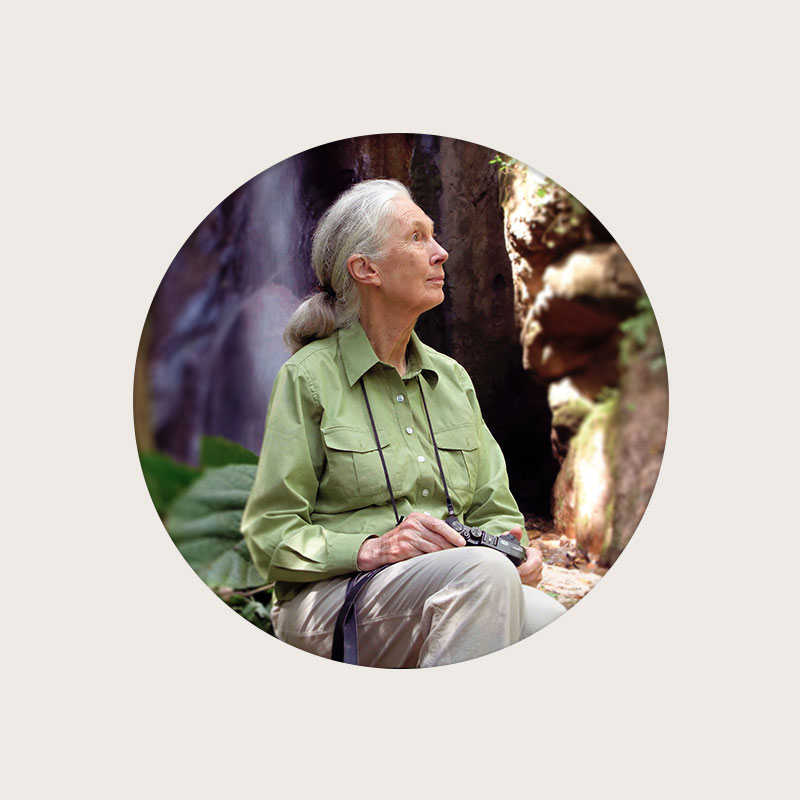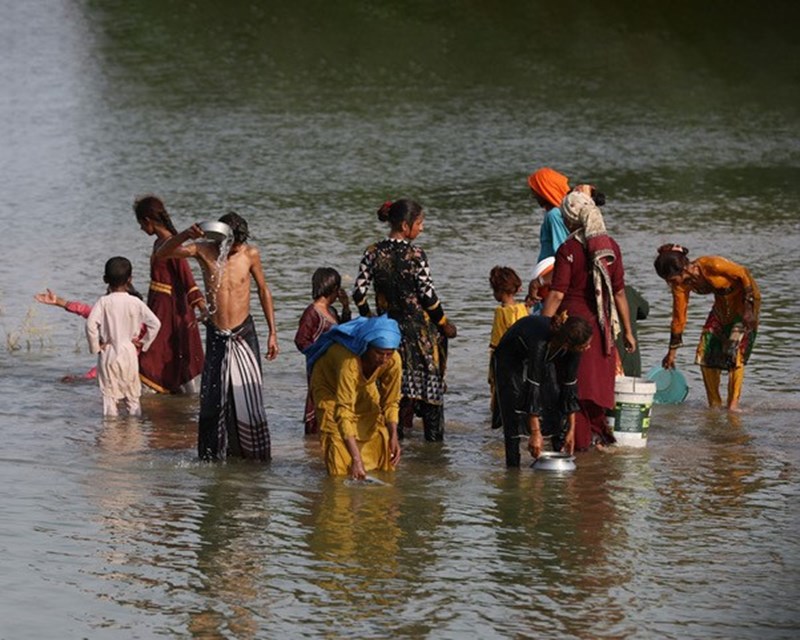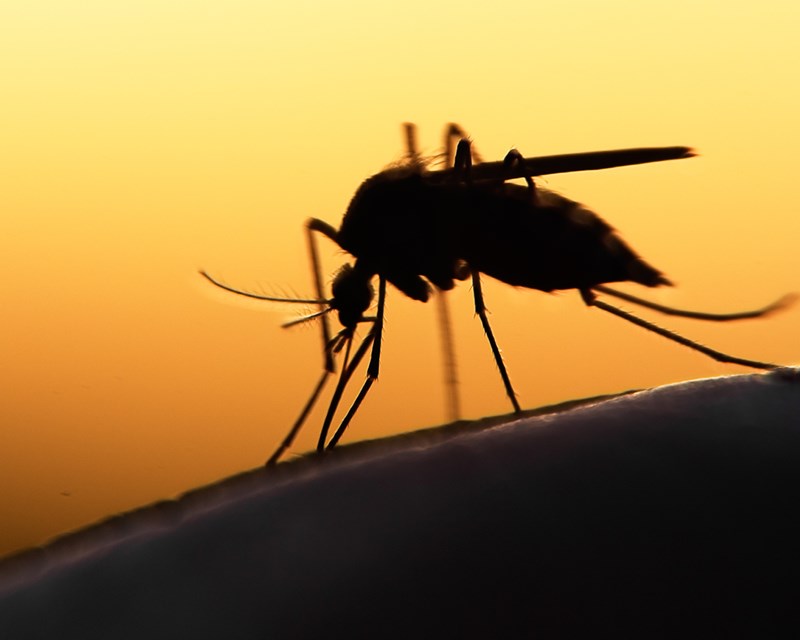When scuba enthusiasts Seif Al Madanat and Beisan AlSharif returned to diving in Aqaba, Jordan, after the Covid-19 lockdown, they could not believe how much litter had amassed on the sea floor.
“We were mindblown by the amount of waste that accumulated because no divers had been collecting it during lockdown” explains Al Madanat, a pharmacist based in the Jordanian capital of Amman. “And when we started looking into it, we read that without intervention, by 2050, the volume of plastic waste in the oceans could exceed that of fish,” he says.
After meeting each other on a post-pandemic dive, Al Madanat, 37, and AlSharif, 34, bonded over a shared instinct to collect bags of sunken plastic. But the more rubbish they collected on their dives, the more they seemed to find.
Moved by the scale of the challenge, the pair launched ProjectSea, which in addition to cleaning and conserving the 28 dive sites dotted along Jordan’s 20 km of Red Sea coastline, is also recycling the recovered plastic into bags and other craft items - creating income for refugees.
To raise the money for the dives – which can be expensive – Al Madanat and AlSharif partnered with a local Jordanian brand, Herb + Design, to sell organic soy wax candles. After the product sold out of its first three batches, they were able to fund four group excursions.
AlSharif, who runs her family's logistics business from Amman, jokes that in the early days of ProjectSea, her friends and relatives would continually receive candles for gifts. "This is how we lit the path of ProjectSea,” she says. “It started as a very small idea, but we wanted to create a movement of sustainability alongside a movement of conscious consumerism.”
ProjectSea struck a chord with local divers straight away and soon also caught the imagination of scuba tourists from around the world. Three years on, the pair have completed more than three dozen clean-up dives and removed some 130,000 pieces of rubbish from the ocean bed.

